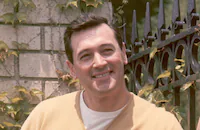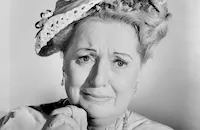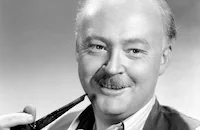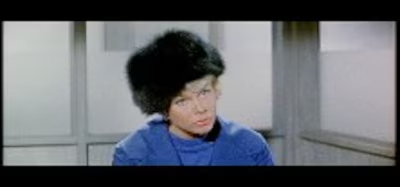Pillow Talk

Brief Synopsis
Cast & Crew
Michael Gordon
Rock Hudson
Doris Day
Tony Randall
Thelma Ritter
Nick Adams
Film Details
Technical Specs

Synopsis
In New York City, interior decorator Jan Morrow shares a party phone line with songwriter Brad Allen, who continually ties up the line singing the same love song, "Inspiration," to his many girl friends. When Jan's complaints yield only disdain from Brad, she reports to the phone company that Brad is a sex maniac, prompting the manager to launch an investigation. The researcher, however, is a single female who is so immediately entranced by the handsome womanizer that she waives the complaint. Meanwhile, Jan refuses a gift of a convertible automobile from her wealthy client and would-be suitor, Jonathan Forbes. The next morning, Brad calls Jan and insinuates that it is her inactive sex life that causes her to hound him, after which she icily suggests a time-share arrangement under which they each use the phone for half of every hour. Alma, Jan's drunkard maid, has been listening in, and now confirms Brad's view that Jan needs a more active sex life. Jan, however, considers all her paramours lacking, including Jonathan. When he later proposes, she explains that he fails to make her "hit the moon" with passion. A frustrated Jonathan grumbles about Jan to Brad, who is an old friend and the writer whom Jonathan has hired to write a musical play. When Brad, who has never seen his party-line partner, recognizes her name, he is fascinated by Jonathan's description of her many assets. Although he scoffs at Jonathan's advice to curtail his playboy lifestyle in favor of marriage, Brad later calls Jan to apologize for his earlier behavior, growing even more intrigued when she remains impervious to his charms.
That night, Jan attends a party hosted by her rich client, Mrs. Walters, whose college-age son Tony offers to drive Jan home. Once on the road, Tony attacks Jan with youthful fervor, forcing her to agree to accompany him to a club, where, unknown to her, she sits next to Brad and his date, Maria. After overhearing Jan's name, Brad notes her lovely figure and schemes to seduce her, and knowing that she would never speak to him, devises a new identity: Rex Stetson, chivalrous Texas rancher. "Rex" soon enchants Jan, who is instantly attracted to the tall, apparently guileless country man. While she muses on his trustworthy appeal, he silently deduces that it will take him only five dates to sleep with her. Later that night, Brad hatches a plan to further endear Rex to Jan by calling and pretending to be first Rex and then Brad, interrupting to warn Jan that he has heard Rex on the line and considers him a rake. Jan sneers at Brad's assumption but the next night, when Rex brings her to his hotel room, she is on guard. He merely retrieves his coat, however, causing her to beg his forgiveness for her untoward suspicions. They then take a hansom cab though the park, during which Brad's handling of the horses delights Jan but horrifies the driver. At dinner, Brad spots Jonathan near the entrance and deters him from coming over to their table by tricking him into thinking he has an unattractive date. Brad and Jan spend the next few days together, enjoying each other so much that she agrees to break a date with Jonathan for him. Jonathan guesses correctly that Jan is in love with someone else, and although he wishes her luck, he hires a private investigator to look into his competition.
Later, Brad avoids running into Jan in Jonathan's hallway by stepping into an obstetrician's office, where he startles Nurse Resnick and Dr. Maxwell by asking for an examination. Soon after, Jonathan's investigator provides photos of "Rex" that compel Jonathan to confront Brad. He tails Brad and Jan to a club, where he clandestinely warns Brad to leave Jan and spend the next weeks secluded in Jonathan's Connecticut home. Brad appears to be remorseful and conpliant but secretly asks Jan to accompany him to the country, where the couple enjoys a romantic rendezvous by the fire. Jan is eager to make love with Rex, but at one point discovers some sheet music and, upon playing it, recognizes the song as "Inspiration." Realizing his ruse has been uncovered, Brad tries to proclaim his love to Jan, but just then Jonathan arrives and Jan flees with him to the city. Despite Jonathan's desire to woo Jan, her constant sobbing on the ride home unnerves him. They stop at a diner, and after he slaps her to help her gain her composure, the appalled patrons assume he is a cad and knock him out. Three days later, a distraught Brad begs Jonathan to help him win back Jan, but when she visits Jonathan's office and spots Brad, she dashes away. He follows her into the ladies' room, managing once again to arouse the interest of Dr. Maxwell, who hopes Brad may prove to be the world's first pregnant man. Desperate, Brad turns to Alma, who calls herself "a devoted listener" to his phone calls and accepts his offer to go to a bar and discuss his situation with Jan.
The next morning, a brutally hungover Brad recalls Alma's advice to hire Jan to decorate his apartment, and schemes with Jan's boss to manipulate her into accepting the job. Jan spends the next few days converting the apartment into a nauseating bachelor pad, complete with animal prints, hanging beads and a harem decor. When Brad sees it, he is infuriated and storms into Jan's apartment, dragging her from her bed in her pajamas and carrying her to his apartment. Brad's brash behavior inspires Jan's elevator operator to flirt with Alma. At Brad's apartment, he launches into an angry tirade, of which Jan registers only that he wants to marry her. When he tries to stomp out, she flicks one of the switches she has installed, which locks the door from the inside. Finally understanding that she loves him, Brad sweeps Jan into his arms. Three months later, Brad returns to Jonathan's building to announce Jan's pregnancy, but is stopped by Nurse Resnick and Dr. Maxwell, who by intrigued at the scientific implications of Brad's declaration that he is having a baby.

Director
Michael Gordon
Cast

Rock Hudson

Doris Day

Tony Randall

Thelma Ritter

Nick Adams
Julia Meade

Allen Jenkins

Marcel Dalio

Lee Patrick

Mary Mccarty
Alex Gerry
Hayden Rorke

Valerie Allen
Jacqueline Beer
Arlen Stuart
Perry Blackwell
Robert B. Williams
Muriel Landers
William Schallert
Karen Norris
Lois Rayman

Don Beddoe
Crew
Arthur E. Arling
Carl Beringer
Phil Bowles
Leslie I. Carey
Milton Carruth
Leon Charles
Jack Cunningham
Edward Dodds
Elsa Doran
Ed Estabrook
Russ Frank
Russell A. Gausman
Larry Germain
Joseph Gershenson
Clarence Greene
Al Harris
Harold Haselbusch
Roswell Hoffman
Dorothy Hughes
Ross Hunter
Henri Jaffa
Inez James
Sol Lake
William Laraby
Ruby R. Levitt
Jean Louis
Joe Lubin
Rosamond Lytle
Nick Marcellino
Solly Martino
Martin Melcher
Betty Mitchell
Frank Morehead
Mike Moromarco
Edward Muhl
Connie Nichols
Tom Oulette
Buddy Pepper
Maria Pickering
Robert Pritchard
Maurice Richlin
Richard H. Riedel
James Rogers
I. J. Roth
Bucky Rous
Russell Rouse
Stanley Shapiro
John Sherwood
William Stevenson
Clifford Stine
John Thoeney
Dan Thomas
K. K. Towers
Harold Tucker
Frank De Vol
Ernest Wehmeyer
Bud Westmore
Kenneth Wilson

Photo Collections
Videos
Movie Clip





Trailer
Hosted Intro




Film Details
Technical Specs

Award Wins
Best Writing, Screenplay
Award Nominations
Best Actress
Best Art Direction
Best Music, Original or Comedy Series
Best Supporting Actress
Articles
Pillow Talk - Pillow Talk
In Pillow Talk, Doris Day plays Jan Morrow, a successful interior decorator who shares a party line on her home phone with Brad Allen (Rock Hudson), a songwriter. The latter spends most of his time on the phone singing to his various girlfriends, which becomes an ongoing annoyance for Jan who needs to use the phone for business. Soon the two are locked in an escalating feud even though they've never actually met each other. Meanwhile, Brad learns that his friend, Jonathan Forbes (Tony Randall), is dating Jan. When Brad finally comes face to face with her in a nightclub, he's surprised to discover how attractive Jan is and decides to introduce himself as Rex Stetson from Texas, using a Southern accent. Eventually, Brad succeeds in making Jan fall in love with him though she doesn't learn his true identity until much later, adding a new wrinkle to the plot.
Pillow Talk was the first time Rock Hudson and Doris Day worked together and the couple quickly hit it off, which is evident in their on-screen chemistry. In Rock Hudson: His Story by Rock Hudson and Sara Davidson, the actor stated, "The trouble we had was trying not to laugh. Doris and I couldn't look at each other. You know, that sweet agony of laughing when you're not supposed to? That's what we had." Rock called Doris "Eunice Blotter" because it made him laugh and she called him "Roy Harold" (Hudson was born Roy Harold Scherer, Jr.).
When asked what he thought made a movie team, Rock Hudson replied, "First of all, the two people have to truly like each other, as Doris and I did, for that shines through. Then, too, both parties have to be strong personalities - very important to comedy - so that there's a tug-of-war over who's going to put it over on the other, who's going to get the last word, a fencing match between two adroit opponents of the opposite sex who in the end are going to fall into bed together." This particular team also worked well because they made a handsome couple. Doris Day once commented, "I was aware of the chemistry between us. We looked good together, we looked like a couple should look." Davidson states in Rock Hudson: His Story, "No two stars were more suited to play the contenders in the American sexual battle than Rock Hudson and Doris Day. Sparks flew - you could feel the charge between them. She was so blond, he was so dark, and both were such clean, wholesome products of the heartland." Nevertheless, some people, including Rock Hudson, were concerned that Pillow Talk might be too racy. But audiences weren't offended. According to producer Marty Melcher, Doris Day's husband, Pillow Talk was perceived as "a clean sex comedy" and audiences and critics loved it.
Pillow Talk went on to earn over $7.5 million in the United States alone. According to The Hollywood Reporter, "Rock Hudson undergoes the metamorphosis from stock leading man to one of the best light comedians in the business." Doris Day was nominated for the Best Actress Academy Award, Thelma Ritter received a nomination for Best Supporting Actress and Pillow Talk won the Oscar for Best Original Screenplay.
Considering the success of Pillow Talk and how much fun they had making it, Doris Day recalls, "Right away, we said, we have to do another one." Day, Hudson, and Randall followed their first box office hit with Lover Come Back (1961) and Send Me No Flowers (1964).
Director: Michael Gordon
Producer: Ross Hunter, Martin Melcher
Screenplay: Stanley Shapiro, Maurice Richlin. Based on a story by Russell Rouse, Clarence Greene.
Cinematography: Arthur E. Arling
Art Direction: Richard Riedel
Music: Frank De Vol
Cast: Rock Hudson (Brad Allen), Doris Day (Jan Morrow), Tony Randall (Jonathan Forbes), Thelma Ritter (Alma), Nick Adams (Tony Walters), Allen Jenkins (Harry), Marcel Dalio (Pierot), Julia Meade (Marie), Hayden Rorke (Mr. Conrad), William Schallert (Hotel Clerk).
C-103m. Letterboxed. Closed captioning.
By Deborah L. Johnson

Pillow Talk - Pillow Talk
Quotes
Officer, arrest this man - he's taking me up to his apartment!- Jan
Well, I can't say that I blame him, miss.- Police Officer
Mr. Allen, this may come as a surprise to you, but there are some men who don't end every sentence with a proposition.- Jan Morrow
Look, I don't know what's bothering you, but don't take your bedroom problems out on me.- Brad Allen
I have no bedroom problems. There's nothing in my bedroom that bothers me.- Jan Morrow
Oh-h-h-h. That's too bad.- Brad Allen
Owww!- Jonathan Forbes
What?- Brad Allen
That chair. It just bit me.- Jonathan Forbes
We're just going to have to live with each other...- Jan Morrow
Well?- Brad Allen
I was waiting for you to say some off-color remark.- Jan Morrow
Is that all you have on your mind?- Brad Allen
Never mind my mind! You just stick to your half hour and I'll stick to mine!- Jan Morrow
Trivia
In the diner scene near the end, the restaurant patrons were supposed to deck the Tony Randall character, who would fake the blow and slide down "unconscious" in the booth seat. However, during filming the actor overestimated his hook and knocked Randall out for real. The shot wound up being so good that the actual take shown in the film was the one of this accidental punch.
This movie would be the first of three to showcase the trio of Day, Hudson, and Randall all together. It was followed by _Lover Come Back in (1961)_ and Send Me No Flowers (1964), with all three actors portraying different roles in each.
Julia Meade (Marie) did a commercial every Sunday night live on The Ed Sullivan Show in New York City. So every Saturday she flew back.
Towards the end of the movie Rock Hudson picks up 'Doris Day' and carries her through the lobby and down the street. After many takes, Hudson's arms were hurting, so they created a sort of sling which held Day in a crate-like device and hooked over Hudson's shoulders to evenly distribute her weight.
Notes
According to a August 28, 1959 "Rambling Reporter" item in Hollywood Reporter, RKO originally bought the script by Russell Rouse and Clarence Greene, in 1942, but when it was not produced, the writers bought it back in 1945. In 1947, they sold it as a play, but bought it back once again four years later, finally selling it in 1958 to Arwin Productions, the company owned by Doris Day's husband, Martin Melcher. Although the film was originally titled Pillow Talk, according to a February 2, 1959 "Rambling Reporter" item in Hollywood Reporter, the title "displeased" the PCA and so was changed to Any Way the Wind Blows. In August 1959, however, the original title was reinstated. The picture was coproduced by Universal and Arwin. Pillow Talk marked director Michael Gordon's first film since the 1951 Twentieth Century-Fox production The Secret of Convict Lake (see below), after which he was among those blacklisted in the wake of investigations by the House Un-American Activities Committee.
As noted in a March 20, 1959 Hollywood Reporter news item, second unit director John Sherwood died of pneumonia during the shoot. Universal borrowed actress Valerie Allen from Paramount and costume designer Jean Louis from Columbia for the film. According to an October 1959 Saturday Review (of Literature) article, Jean Louis designed twenty-four costumes for Doris Day and Laykin et Cie. loaned the production $500,000 worth of jewels. Dwayne Hickman was originally cast as "Tony Walters," but, as reported in a May 3, 1959 Hollywood Reporter news item, he contracted a fever and was replaced by Nick Adams. In the film's nightclub scene, Perry Blackwell sings two songs, "You Lied" and "I Need No Atmosphere."
April 1959 Hollywood Reporter news items add Sheilah Rogers and Marion Nelson to the cast, but their appearance in the final film has not been confirmed. Another April 1959 Hollywood Reporter item states that Hope Emerson was to play an Indian princess named Desert Flower, but she is not in the final film. Contemporary reviews noted the film's use of split screen technology during the scenes in which "Jan Morrow" and "Brad Allen" talk on their party line, as well as Rock Hudson's skill in his first comedic role. In her autobiography, Day stated that in the scene in which Hudson totes her through the New York streets, she was placed on a special shelf with hooks to make it easier for him to carry her. According to an August 18, 1959 Hollywood Reporter news item, Hudson was to sing the film's title song and "Roly Poly" for Decca Records, while Day had already recorded "Pillow Talk" for Columbia Records.
Pillow Talk helped redefine Day's image into what she described in her autobiography as "a new kind of sex symbol-the woman men wanted to go to bed with, but not until they married her." The film's popularity propelled Day and Hudson to the top of the box office charts and earned them Photoplay and Golden Globe awards as the most popular actors of 1959. It also ushered in a new wave of romantic, often suggestive comedies popular in the 1960s. The film marked the first of three collaborations between Melcher, Day, Hudson and Tony Randall for Universal, including Lover Come Back, 1961, directed by Delbert Mann, and Send Me No Flowers, 1964, directed by Norman Jewison (see AFI Catalog of Feature Films, 1961-70).
Pillow Talk was listed on the New York Times list of the 10 Best Films of 1959, and received the following Academy Award nominations: Best Actress (Day); Best Supporting Actress (Thelma Ritter); Art Direction, Color (Richard H. Riedel, Russell A. Gausman and Ruby R. Levitt); and Music Scoring, Dramatic or Comedy Picture (Frank de Vol). The film won the Academy Award for Writing, Story and Screenplay Written Directly for the Screen (Rouse, Greene, Stanley Shapiro and Maurice Richlin). Shapiro and Richlin were also nominated in 1959 for Operation Petticoat.

Miscellaneous Notes
Voted One of the Year's Ten Best Films by the 1959 New York Times Film Critics.
Released in United States Fall October 1959
Released in United States on Video April 7, 1988
This was the first of the Hudson-Day comedies.
CinemaScope
Released in United States Fall October 1959
Released in United States on Video April 7, 1988














